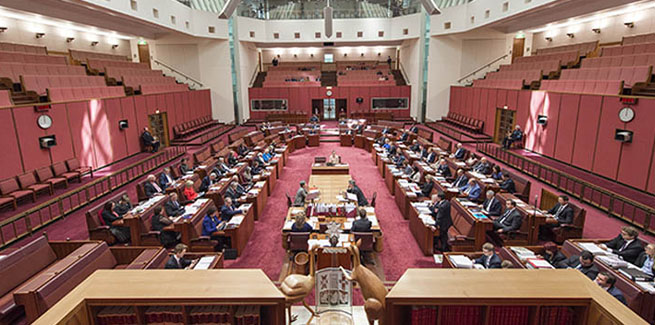The committee has released its final report for its inquiry into the National Consumer Credit Protection Amendment (Supporting Economic Recovery) Bill 2020.
The bill largely focuses on amending the credit laws so that they remove responsible lending obligations (RLOs) and extend the best interests duty to more credit assistance providers, among other changes.
The chief intention of the removal of the RLOs, as set out by the federal government, is to reduce the time it takes for individuals and small businesses to access credit and streamline lending regulation.
After receiving more than 100 submissions and holding two hearings into the matter, the committee has now recommended that the bill be passed and the obligations repealed.
The report reads: “The committee notes that a well-functioning credit market is essential for economic growth generally, and for Australia’s recovery from the COVID-19 pandemic specifically.
“The committee agrees that the current consumer credit protection framework is potentially overly prescriptive and that regulatory duplication between the responsible lending obligations, under the Credit Act, and the prudential standards issued by APRA could be an issue.”
It went on to say that it was “concerned by evidence that the regulatory framework has resulted in consumers being unable to access credit in a timely manner to buy their first home or to obtain a grant under the HomeBuilder scheme”.
It added that it was also concerned by the “invasive and onerous nature of the inquiry and verification processes required under the existing responsible lending obligations”.
The report reads: “The committee notes the key concerns with the proposed reforms raised by inquiry participants, both through their submissions and at the two public hearings held in Canberra.
“The committee is of the view that these regulatory changes will not undermine consumer protections and that the principal of 'responsible lending' is deeply embedded in Australia's broader regulatory framework, which credit providers and credit assistance providers must still operate within and comply with.
“Additionally, the committee notes the vital role that AFCA plays in the efficient resolution of complaints and redress for consumers who need it. It is a free, fast and independent dispute resolution scheme, which improves the level of support and outcomes for consumers, especially those who are in substantial hardship. The committee suggests that the government continue to raise awareness of and promote the dispute resolution services available through AFCA, with an ongoing focus on continual improvements of AFCA’s processes and services.”
The Senate committee also “welcomed” the extension of the best interests obligations, which currently apply only to mortgage brokers, to other credit assistance providers, and “the enhancement proposed by APRA to its credit risk management prudential standard (APS 220) requiring ADIs to assess an individual borrower’s capacity to repay a loan without substantial hardship”.
The committee also notes similar arrangements are expected to be put in place for non-ADIs through a legislative instrument.
“The committee is acutely aware of the harm that unsuitable SACCs and consumer leases can cause vulnerable members of the community, and strongly supports the proposed enhancements to consumer protections for these products,” it said.
“In addition to protecting vulnerable members of the community, the committee believes the reforms proposed by the government will promote financial inclusion through the introduction of a new protected earnings amount and a cap on costs for consumer lease.
“The committee believes these reforms will reduce the risk that consumers are unable to pay for their basic needs, or will default on their other commitments."
Senator Slade Brockman, Liberal senator for Western Australia and chair of the committee, concluded: “The committee recommends the bill be passed.”
The National Consumer Credit Protection Amendment (Supporting Economic Recovery) Bill 2020 is now scheduled for debate on Monday (15 March) in the Senate.
If the bill is passed, the date of effect for the amendments will be the day after Royal Assent.
However, the amendments related to the best interests obligations will commence six months after that day.
[Related: Treasury defends responsible lending repeal in Senate hearings]
